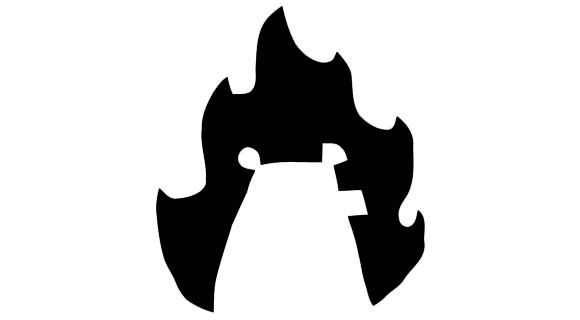 First of all, as critics —or press, as people call us—, we are interested in something you made called Presskit(), now 2.0, which is very cool, very useful, because as you said about that 700 emails we get daily is mostly true. Yeah —yeah. They send pdfs, which are the worst. (Laughs.) A lot of times I hear people say, like, should I send a zip file with everything in it? And I’m like, no! Make a website! For me, the main new or strange thing about our relationship, between critics and game makers, is Steam’s Early Access, because you don’t really know when a game is «out» or how to create that momentum, because embargoes are not so useful, as we saw with Double Fine and the Broken Age incident. I don’t know when to review Nuclear Throne, for example, because I’m 70 hours into the game, I pretty much could review it, but I can’t. One of the biggest challenges we have is communicating to the press how far we imagine the game to be, because I think it’s really important for us to make our progress transparent, both to consumers and to the press. So one of the things we are really, really trying to do is to make clear to press that it’s not a final game, but it’s stable and you could preview it at this point and get a good preview out of it, but reviewing it would miss some of the core aspects of the game. Because we almost started just right now. On saturday [this interview was made on friday] we are gonna launch the update of Nuclear Throne that actually has the nuclear throne. Wow!
First of all, as critics —or press, as people call us—, we are interested in something you made called Presskit(), now 2.0, which is very cool, very useful, because as you said about that 700 emails we get daily is mostly true. Yeah —yeah. They send pdfs, which are the worst. (Laughs.) A lot of times I hear people say, like, should I send a zip file with everything in it? And I’m like, no! Make a website! For me, the main new or strange thing about our relationship, between critics and game makers, is Steam’s Early Access, because you don’t really know when a game is «out» or how to create that momentum, because embargoes are not so useful, as we saw with Double Fine and the Broken Age incident. I don’t know when to review Nuclear Throne, for example, because I’m 70 hours into the game, I pretty much could review it, but I can’t. One of the biggest challenges we have is communicating to the press how far we imagine the game to be, because I think it’s really important for us to make our progress transparent, both to consumers and to the press. So one of the things we are really, really trying to do is to make clear to press that it’s not a final game, but it’s stable and you could preview it at this point and get a good preview out of it, but reviewing it would miss some of the core aspects of the game. Because we almost started just right now. On saturday [this interview was made on friday] we are gonna launch the update of Nuclear Throne that actually has the nuclear throne. Wow! 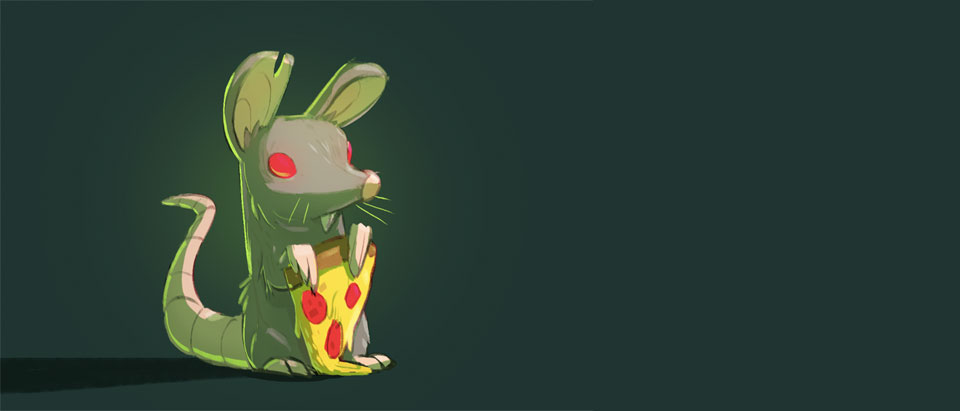
And the nuclear throne in the game is actually something that you have been fighting for, that the community has been fighting for for the past few months, they have been trying to get good enough to reach the furthest world we have in the game, and we kept adding new worlds —we added the Frozen City, and then we added the Laboratory, and then we added the Palace, and now we’re adding the Throne, and the final confrontation in the game, before you reach the nuclear throne. So a lot of things that people have been working towards for months are coming together right now, which is being able to reach the nuclear throne. The thing is, that is not where the game ends —for us, that is very much the first part of the story that we want to tell in Nuclear Throne.
So anybody who has reviewed the game up until now has reviewed half of it. We’ve been asking press mostly to treat it as a preview —most of them have treated it mostly as a preview. But building momentum for when the game launches is actually a hard thing, we don’t know. So what we thought is that instead of depending on the press to spread the word, we’re trying to depend on youtubers and the community itself, for the viral aspects of it. It’s not even the viral aspect, right? It’s like, the more people that join and enjoy the game, the more people will pay attention to news about the game —so we don’t even need big news, we just need some news to get people that like the game back. All we need to get them back is to make sure that when they play it now they have a good experience. So, for us is really, really important to make sure that the game is always stable, that is always interesting or fun, that there’s never something that makes it terrible. We make sure that people want to play, and with the livestreams, and every saturday we update, we’re trying to get them back every week. 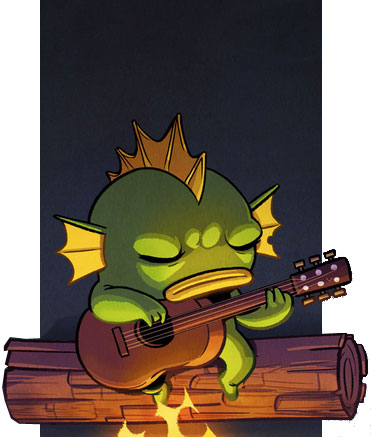 You’ve talked about the story and the lore, and I wanted to ask you about this aspects that are mostly hidden now. With Ridiculous Fishing nobody talked about the story, and it was very beautiful and surprising. Thank you. We like that, we like putting a story in a game but we don’t like telling stories —we’re not storytellers, we make video games that are very much focused on gameplay. But we love stories. One of our favorite things are stories —Super Crate Box has a story and nobody knows it, because we were terrible at hiding it in the game, but it’s there! It’s about a construction worker who goes down into a rocket silo and then goes to the Moon to beat some evil thing with a temple —which are the three levels in Super Crate Box. For us there’s a sense to that world, to that fiction. And Nuclear Throne is very much like that —we just became better at telling stories, so its world is far richer, and far more interesting than Super Crate Box’s. Sometimes we joke that they are in the same universe, all of our games —that everything fits into the same Vlambeer universe. I’m not saying it does, we just argue about that like we argue about everything… You can find Super Crate Box’s weapons in Nuclear Throne. Yeah, and Ridiculous Fishing has a few references as well. I like to think of Super Crate Box as the end of the world, and Ridiculous Fishing probably happens like somewhere after that. I like to think that there is some continuous kind of universe. Yung Venuz, one of our characters from Gun Godz, comes back in Nuclear Throne… Nuclear Throne is pretty much what you get when you accumulate three years of Vlambeer into one game. The lore of all our games fits in there, even Luftrausers. I think Ridiculous Fishing came out around the same time as Little Inferno, another small game with a cool story. Do you feel that this a better way to tell stories, or to make people get more involved with stories? I don’t know. The reason we make games like that, as I said, is because we are not storytellers. We are not good at telling stories —we are good at creating worlds. We are good at keeping everything to a fiction. I think it’s a more interesting way of telling a story. But then I’ve played video games that are the opposite that I love as well. I’m a huge fan of Metal Gear Solid, I’m a huge fan of The Last of Us, and they tell stories in the most traditional way possible —it’s cutscene, cutscene, cutscene. But in The Last of Us, for example, there’s this scene at the beginning, spoiler alert, where the daughter dies. And that’s such a powerful scene, because you’ve played with the daughter for like three or four minutes, so you have controlled that character and then she dies, and it’s like, wow. The Last of Us does some really interesting things with gameplay. Exactly! So, for us, we’re not storytellers —we like to tell stories, but we like making gameplay more, so we hide our story in our gameplay. While other creators, they like storytelling more than gameplay, so they use traditional mechanics to tell really innovative and interesting stories. One of my favorite story games last year was Papers, Please, which barely has any story, to be honest, it’s through the mechanics that they tell the story. We try to tell a story through the fiction, through the world, and not through anything else. And we like that! I asked that because I remember the tale of redemption of Ridiculous Fishing a lot more than Final Fantasy Whatever. Exactly, because that was something that you didn’t know you were building up to, and it contextualizes everything you’ve done in the game up to that. The interesting thing about Ridiculous Fishing is that it’s very much an experiment in trying to tell a story in handsight. Can you make people play an entire game and at the end of it, tell them «this is the story that you’ve been fighting for, this is what you’ve been doing, this is what you’ve been trying to achieve». And I think it worked, it made a huge impact on people because they didn’t expect it. For us, that’s way more interesting —doing weird, new, interesting stuff rather than doing the same thing. Nuclear Throne is very much grounded in being a trope. It’s just tropes, clichés. It’s a cliché science fiction story. We don’t want to innovate, we want to push something that is completely not innovative into video games, and hopefully doing that as blatantly as we do create something new. I want to talk about game feel. I guess you remember this talk by J.W. You’ve made games about shooting and cutting things, a specific type of game feel: the burst from the guns, the screen shake… Would you say that’s your stamp? One thing that not many people know about Vlambeer is that we’ve created a bunch of games that have no shooting. We created a game that was called Glitchhiker, which is a video game that died, a top-down game made during the Global Game Jam. The game died, it’s unplayable —you can download it, but it won’t work. That’s also a Vlambeer game and nobody realized that. We made a game called Yeti Hunter, about hunting a yeti that didn’t exist in the game. The trick with that game was that the yeti didn’t exist for 99% of the players, but there was a chance that there would be a yeti, but it’s a super tiny chance. That game wasn’t played by individual people —the way the game was played was by a lot of people playing it alone and one person seeing the yeti, right? And tweeting about that and nobody believing him. And that’s the feeling we wanted to tell. We watched a documentary about a guy who claimed he saw a yeti and nobody believed him, and we thought, can we put that in a video game? Can we get that feeling? We work with game feel in many different ways —it’s just that the arcade games we make are the ones that we work on for more extended periods of time. So I guess it’s a stamp. When people play a Vlambeer game they know what they’re getting, but not exactly —they know it’s gonna be a game that feels nice, that it’s going to ask you to be skillful, that you’re probably be terrible at when you start and then slowly get better at. And those are our trademarks, but then beyond that we make something else every time. We’ve made a fishing game, a first person shooter, a top-down roguelike, a platformer —none of our games fit in the same genre, or within the same box, the only thing they have in common is that they tend to be games with good impact, so action games in general, that allow for a large amount of skill, that a lot of people get better at the game and that are probably really, really hard. And that have some sort of consistency to them: our games are confined, but they fit, they are really well encapsulated. That’s sort of what people expect and that’s what we make. It’s what we enjoy making most, but every now and then we like to make something else, and we do that.
You’ve talked about the story and the lore, and I wanted to ask you about this aspects that are mostly hidden now. With Ridiculous Fishing nobody talked about the story, and it was very beautiful and surprising. Thank you. We like that, we like putting a story in a game but we don’t like telling stories —we’re not storytellers, we make video games that are very much focused on gameplay. But we love stories. One of our favorite things are stories —Super Crate Box has a story and nobody knows it, because we were terrible at hiding it in the game, but it’s there! It’s about a construction worker who goes down into a rocket silo and then goes to the Moon to beat some evil thing with a temple —which are the three levels in Super Crate Box. For us there’s a sense to that world, to that fiction. And Nuclear Throne is very much like that —we just became better at telling stories, so its world is far richer, and far more interesting than Super Crate Box’s. Sometimes we joke that they are in the same universe, all of our games —that everything fits into the same Vlambeer universe. I’m not saying it does, we just argue about that like we argue about everything… You can find Super Crate Box’s weapons in Nuclear Throne. Yeah, and Ridiculous Fishing has a few references as well. I like to think of Super Crate Box as the end of the world, and Ridiculous Fishing probably happens like somewhere after that. I like to think that there is some continuous kind of universe. Yung Venuz, one of our characters from Gun Godz, comes back in Nuclear Throne… Nuclear Throne is pretty much what you get when you accumulate three years of Vlambeer into one game. The lore of all our games fits in there, even Luftrausers. I think Ridiculous Fishing came out around the same time as Little Inferno, another small game with a cool story. Do you feel that this a better way to tell stories, or to make people get more involved with stories? I don’t know. The reason we make games like that, as I said, is because we are not storytellers. We are not good at telling stories —we are good at creating worlds. We are good at keeping everything to a fiction. I think it’s a more interesting way of telling a story. But then I’ve played video games that are the opposite that I love as well. I’m a huge fan of Metal Gear Solid, I’m a huge fan of The Last of Us, and they tell stories in the most traditional way possible —it’s cutscene, cutscene, cutscene. But in The Last of Us, for example, there’s this scene at the beginning, spoiler alert, where the daughter dies. And that’s such a powerful scene, because you’ve played with the daughter for like three or four minutes, so you have controlled that character and then she dies, and it’s like, wow. The Last of Us does some really interesting things with gameplay. Exactly! So, for us, we’re not storytellers —we like to tell stories, but we like making gameplay more, so we hide our story in our gameplay. While other creators, they like storytelling more than gameplay, so they use traditional mechanics to tell really innovative and interesting stories. One of my favorite story games last year was Papers, Please, which barely has any story, to be honest, it’s through the mechanics that they tell the story. We try to tell a story through the fiction, through the world, and not through anything else. And we like that! I asked that because I remember the tale of redemption of Ridiculous Fishing a lot more than Final Fantasy Whatever. Exactly, because that was something that you didn’t know you were building up to, and it contextualizes everything you’ve done in the game up to that. The interesting thing about Ridiculous Fishing is that it’s very much an experiment in trying to tell a story in handsight. Can you make people play an entire game and at the end of it, tell them «this is the story that you’ve been fighting for, this is what you’ve been doing, this is what you’ve been trying to achieve». And I think it worked, it made a huge impact on people because they didn’t expect it. For us, that’s way more interesting —doing weird, new, interesting stuff rather than doing the same thing. Nuclear Throne is very much grounded in being a trope. It’s just tropes, clichés. It’s a cliché science fiction story. We don’t want to innovate, we want to push something that is completely not innovative into video games, and hopefully doing that as blatantly as we do create something new. I want to talk about game feel. I guess you remember this talk by J.W. You’ve made games about shooting and cutting things, a specific type of game feel: the burst from the guns, the screen shake… Would you say that’s your stamp? One thing that not many people know about Vlambeer is that we’ve created a bunch of games that have no shooting. We created a game that was called Glitchhiker, which is a video game that died, a top-down game made during the Global Game Jam. The game died, it’s unplayable —you can download it, but it won’t work. That’s also a Vlambeer game and nobody realized that. We made a game called Yeti Hunter, about hunting a yeti that didn’t exist in the game. The trick with that game was that the yeti didn’t exist for 99% of the players, but there was a chance that there would be a yeti, but it’s a super tiny chance. That game wasn’t played by individual people —the way the game was played was by a lot of people playing it alone and one person seeing the yeti, right? And tweeting about that and nobody believing him. And that’s the feeling we wanted to tell. We watched a documentary about a guy who claimed he saw a yeti and nobody believed him, and we thought, can we put that in a video game? Can we get that feeling? We work with game feel in many different ways —it’s just that the arcade games we make are the ones that we work on for more extended periods of time. So I guess it’s a stamp. When people play a Vlambeer game they know what they’re getting, but not exactly —they know it’s gonna be a game that feels nice, that it’s going to ask you to be skillful, that you’re probably be terrible at when you start and then slowly get better at. And those are our trademarks, but then beyond that we make something else every time. We’ve made a fishing game, a first person shooter, a top-down roguelike, a platformer —none of our games fit in the same genre, or within the same box, the only thing they have in common is that they tend to be games with good impact, so action games in general, that allow for a large amount of skill, that a lot of people get better at the game and that are probably really, really hard. And that have some sort of consistency to them: our games are confined, but they fit, they are really well encapsulated. That’s sort of what people expect and that’s what we make. It’s what we enjoy making most, but every now and then we like to make something else, and we do that. 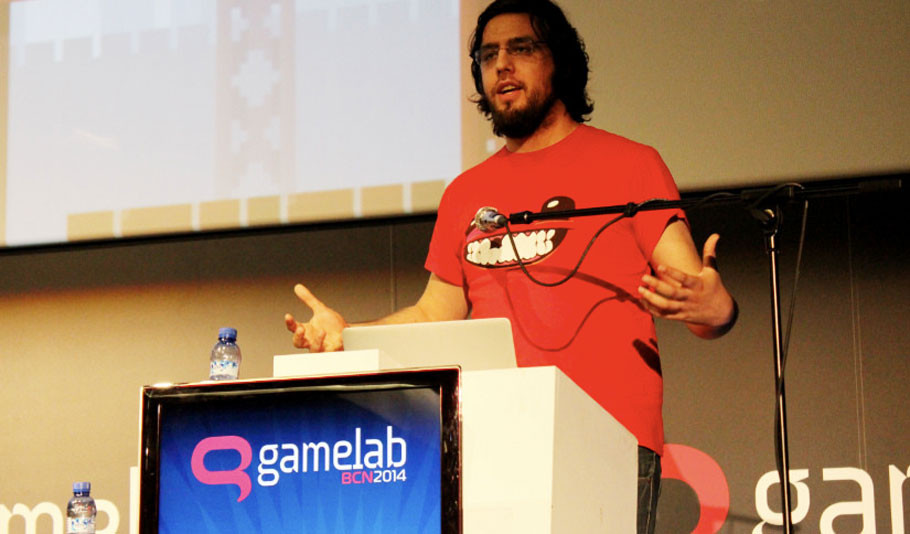 Earlier you talked about using our cultural or national heritage in games, and that’s something I think about a lot —I don’t know a lot of games that talk about the real world, about history and stuff. There’s Assassin’s Creed, but that’s pretty much fantasy after all. Yeah, that’s very literal, right? I don’t mean that, I don’t mean literal. I mean that the way people look at life is different in every location in the world. We like to think of the world as globalized, but I can tell you that when you fly from Italy to Spain the world changes, it’s not the same place, the same attitude, people don’t behave the same. Not the same traffic, not the same words, or even words that mean the same thing they use when they’re shouting at people… This worlds are different. When people make games, I’m not asking them to put things from their culture in literally, I’m asking to put themselves, and with themselves, their cultural heritage, their history, their perspective on life into the game. So a Dutch game is usually small, usually well designed —it’s Dutch design, it’s something we’ve done for centuries. It’s something very, very Dutch. You can recognize Dutch games: they do one thing, but they do it really, really well. If you go to England, they tend to be larger, not very focused, because British people are fine with leaving something broken as long as it works, that’s very typical from Great Britain. So you get different games, even though we are right next to each other, but it’s night and day. And that’s what I ask people. And I don’t know about Spain. I don’t know what a Spanish game would look like, what would a Spanish person put into a game where every Spaniard would go, like, «heeey», and the rest of the world would go, «oh, that’s cool».
Earlier you talked about using our cultural or national heritage in games, and that’s something I think about a lot —I don’t know a lot of games that talk about the real world, about history and stuff. There’s Assassin’s Creed, but that’s pretty much fantasy after all. Yeah, that’s very literal, right? I don’t mean that, I don’t mean literal. I mean that the way people look at life is different in every location in the world. We like to think of the world as globalized, but I can tell you that when you fly from Italy to Spain the world changes, it’s not the same place, the same attitude, people don’t behave the same. Not the same traffic, not the same words, or even words that mean the same thing they use when they’re shouting at people… This worlds are different. When people make games, I’m not asking them to put things from their culture in literally, I’m asking to put themselves, and with themselves, their cultural heritage, their history, their perspective on life into the game. So a Dutch game is usually small, usually well designed —it’s Dutch design, it’s something we’ve done for centuries. It’s something very, very Dutch. You can recognize Dutch games: they do one thing, but they do it really, really well. If you go to England, they tend to be larger, not very focused, because British people are fine with leaving something broken as long as it works, that’s very typical from Great Britain. So you get different games, even though we are right next to each other, but it’s night and day. And that’s what I ask people. And I don’t know about Spain. I don’t know what a Spanish game would look like, what would a Spanish person put into a game where every Spaniard would go, like, «heeey», and the rest of the world would go, «oh, that’s cool». 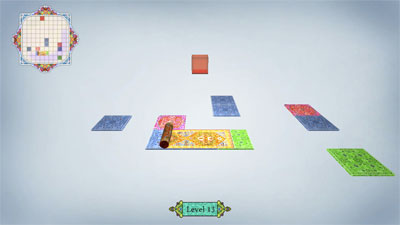 There’s a guy called Mahdi Bahrami, he’s from Iran and he made a game called Farsh. Farsh is a game about rolling carpets, where you roll the carpets and you have to put them in corners and it’s sort of a puzzle game. It’s a really, really wonderful game. As an Egyptian, I know why he picked carpets, because that’s something we do in Egypt, too, and in Iran apparently as well. You have carpets in your house, because there’s sand everywhere, so you put carpets in your house, but then you roll the carpets up once a year, up the stairs, and around the corner, and you have to fit them through everything, and you go to the top of the roof and leave them there to blow-dry from the Sun and then clean them. That’s something I’ve done a hundred times in my youth, so when I saw the game I was like, «that! That is my culture!» And nobody else ever did that, because there aren’t that many people from that culture making games. But it’s that tiny choice, right? Because it could’ve been a game about, I don’t know, a line, or a car, but he went for carpets, and he didn’t do that to make a game about Iran —he chose that because that is what he is as an Iranian. And that is interesting. Let’s try to rephrase the question: do you think people tend to make uninteresting games because try to copy stuff from another cultures? The problem is that a lot of people from very interesting parts of the world see the games industry as Western Europe, Japan and the US, right? In fact, they usually see Western Europe and the US as the same thing, so you have the West and Japan —that is what we see as «the market». But the reality is that the market is growing really rapidly, and you see people making games for Russians, which, you know, they’re not a market that has been really big, but people make games for Russia and they earn more than anybody else could do elsewhere, because suddenly there’s an audience. I think people trying to copy Western games or Japanese games, they will never be able to do that as the people from there —nobody can make a Dutch game as well as the Dutch, right? Nobody could make a Spanish game as good as the Spanish. So all people need to do is make their thing accessible, and that’s one of the big problems we have in a lot of emerging territories at the moment: they’re trying to get attention by pretending to be something else, while if they tried to get attention by being true to themselves it would probably be much easier, all they would need to do is take what it’s interesting and make it accessible. One of the big powers of video games is that we all understand playing, right? It’s intuitive to all players, the idea of playing. What we tell through it can be anything. And if people would use that more, instead of just copying, it would be far more interesting. It starts by being different, we are different by definition, as you said. Yeah, like I said in my talk, everybody is strange, right? So let’s allow people to make strange games. Going back to game mechanics and design, your weapons are amazing. Discovering a new weapon in Nuclear Throne changes everything. How do you design that? Is there a general idea behind each weapon, or there are stats and attributes?
There’s a guy called Mahdi Bahrami, he’s from Iran and he made a game called Farsh. Farsh is a game about rolling carpets, where you roll the carpets and you have to put them in corners and it’s sort of a puzzle game. It’s a really, really wonderful game. As an Egyptian, I know why he picked carpets, because that’s something we do in Egypt, too, and in Iran apparently as well. You have carpets in your house, because there’s sand everywhere, so you put carpets in your house, but then you roll the carpets up once a year, up the stairs, and around the corner, and you have to fit them through everything, and you go to the top of the roof and leave them there to blow-dry from the Sun and then clean them. That’s something I’ve done a hundred times in my youth, so when I saw the game I was like, «that! That is my culture!» And nobody else ever did that, because there aren’t that many people from that culture making games. But it’s that tiny choice, right? Because it could’ve been a game about, I don’t know, a line, or a car, but he went for carpets, and he didn’t do that to make a game about Iran —he chose that because that is what he is as an Iranian. And that is interesting. Let’s try to rephrase the question: do you think people tend to make uninteresting games because try to copy stuff from another cultures? The problem is that a lot of people from very interesting parts of the world see the games industry as Western Europe, Japan and the US, right? In fact, they usually see Western Europe and the US as the same thing, so you have the West and Japan —that is what we see as «the market». But the reality is that the market is growing really rapidly, and you see people making games for Russians, which, you know, they’re not a market that has been really big, but people make games for Russia and they earn more than anybody else could do elsewhere, because suddenly there’s an audience. I think people trying to copy Western games or Japanese games, they will never be able to do that as the people from there —nobody can make a Dutch game as well as the Dutch, right? Nobody could make a Spanish game as good as the Spanish. So all people need to do is make their thing accessible, and that’s one of the big problems we have in a lot of emerging territories at the moment: they’re trying to get attention by pretending to be something else, while if they tried to get attention by being true to themselves it would probably be much easier, all they would need to do is take what it’s interesting and make it accessible. One of the big powers of video games is that we all understand playing, right? It’s intuitive to all players, the idea of playing. What we tell through it can be anything. And if people would use that more, instead of just copying, it would be far more interesting. It starts by being different, we are different by definition, as you said. Yeah, like I said in my talk, everybody is strange, right? So let’s allow people to make strange games. Going back to game mechanics and design, your weapons are amazing. Discovering a new weapon in Nuclear Throne changes everything. How do you design that? Is there a general idea behind each weapon, or there are stats and attributes? 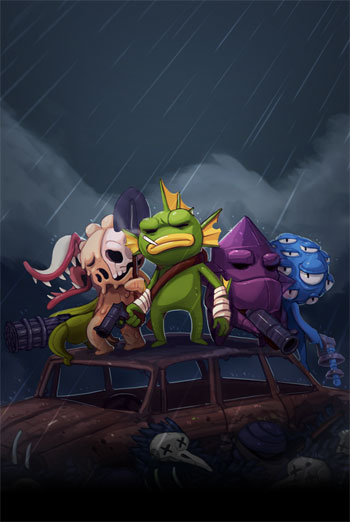
Most of our weapons are actually pretty unique. They build upon ideas, like a machine gun is a fast-firing weapon —weapons with bullets, the normal ammo, are fast-firing, relatively accurate, while those with shells are good clearing weapons that do tremendous damage. We have this archetypes, and the first thing we did was building every variation. For example, for Super Crate Box we did the opposite: we tried to take down the amount of weapons as fast as possible. For Nuclear Throne, we added anything that is different, because you create some interesting things. So you have the SMG, for example, that is a very strange weapon: it’s a bullet weapon, but it’s highly inaccurate, while most bullet weapons are accurate, right? That creates an interesting interplay, because if you combine that with, for example, the Eagle Eyes mutation you get something cool. So we are designing in a very modular fashion. We create every possible variation of something, because we are interested in the ways they can interplay with each other, with the habilities, and the mutations, and all that. We are being very maximizing, while we usually minimize, and it’s actually really cool. One of my favorite things about the game is when the community emails and says «hey, did you know you could do that?», and we’re like, «no…»
I read about someone throwing a grenade and then hitting it with the sledgehammer. Yeah! How did they come up with that?! When I saw that I thought, well, it’s cool if you can hit a grenade, but we never thought of that as a strategy, because they explode when you do that. But then we added Steroids, so you could probably do both, and it was a strategy, so I was, «oh…» We are trying to add things that are different enough so you can do interesting things with them. But besides that we’re just trying to do as much as possible. One of my favorite things is that when I play Nuclear Throne I can still find things that I never thought about. Your games are typically hard games, or… (Laughs.) Well, yeah, hard games (we all laugh). I’ve been thinking about this for quite a while, now, and I feel like hard games tend to be not so welcoming to, like, my mom, for example, or teachers, or people that could give us things, that we could learn from, I don’t know, a math teacher or something. How do you think games should try to find a balance between being accesible without dumbing things down and being true to themselves? I think (stops for a few seconds) I think games should not try to find that balance. I really believe that a game should just be genuine to what it is. We make games for us. We don’t make them because we want to play them —everybody says, «I make games because I want to play them», and that’s the worst idea, that’s the dumbest thing, because if you make the game you won’t be able to play it, right? You’ll never be able to enjoy it properly. So we don’t make the games we want to play, we make the games we want to make. We make them because we think that’s fun to make, we think there’s something cool, or funny, or weird, or we can fuck with our players, or, you know, we can mess up things, or subvert things. We make games because we think it’s interesting to make those and to see how people react to that. So we are not trying to find that balance, we are trying to make the game that we intend to make, and play with that, subvert things. So we will generally make games that are for people that enjoy arcade games and we’ll try to mess with their expectations, because they are actually the most vulnerable group to do that to —they have so many expectations, they are so used to video games that if there’s just one little different thing they’ll go «I don’t how to deal with this!», and that is cool. Making a game where you have to hunt a yeti but there’s no yeti —the funnest thing I’ve done in my life. Hundreds of people will go, «ha, ha, well done, Vlambeer, there’s no yeti», and then that one person will post a picture of the yeti and then they’re like «Photoshop! Photoshop! I’ve been hunting for a yeti forever and there’s no yeti». And then you can just make the game different, because they have so many expectations about what a video game is. So, I think it’s interesting what a math teacher would think about our games, but that’s not what we make. What we make is this, and it’s for a specific audience, and we think our audience like us because they know what we like making —they know we like to make a certain type of game, and we think that’s why they’re interested in what we do. Because they know us. It’s not about the games, it’s about why we make them. 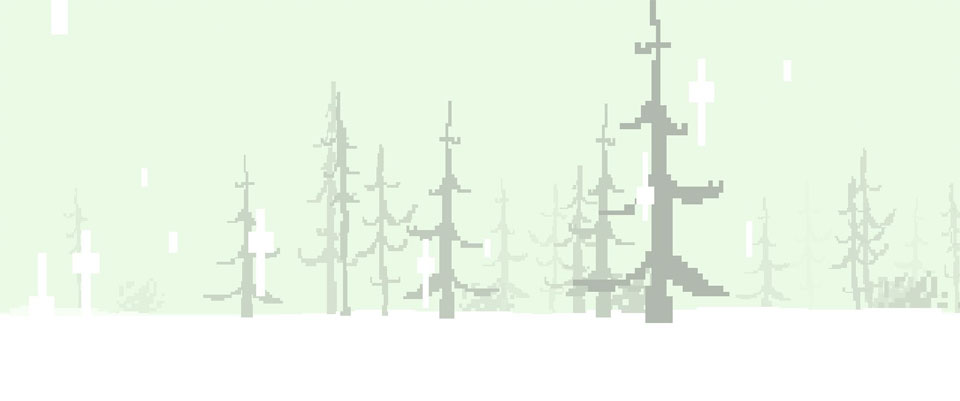 I thought about this when someone asked you about how would a game made by an old man, or women —women, I can imagine, there are good games made by women, we know them, but how would an old person design a game? George Broussard is like fifty-something by now and he’s making games. But that’s not old! (Laugh) Fifty-something is quite old for a game developer! It’s almost as old as our medium. He has lived through video games. My grandma is older than video games. How insane is that? In twenty years, thirty years, I wonder if he will still be making games. I would love to see those. But yeah, I agree, it’s fascinating. It’s the diversity thing: the more diverse the people in our medium are, the more beautiful stuff we’ll get. It’s like in movies. Talking about our times, I think that for a three-and-a-half-years-old studio you’ve made more games, and better games, than older studios. Are you scared of hitting the roof? No! No, no! If we hit the roof, we’ll just quit. That’s sort of the idea. Vlambeer was never meant to be forever. Me and W.J. never thought of Vlambeer as something that we’ll do for the rest of our lives. We thought of it as a way to escape school, and then when we noticed that some of the things we were saying were things that weren’t being said, we saw Vlambeer as a way to say things that we think are important, and we’ll keep saying things and making games until we feel that we have nothing to add. And then we’ll just do something else. We are lucky and extremely happy that Vlambeer is doing so well, we are in a really privileged position right now, where if we say we’re done, we can be done. But I would love to hit that roof, because that would mean that we’ve said everything we needed to say, and Vlambeer has done what it was meant to do, which is to say things about the industry. For us, a lot of Vlambeer is proving to people that games that are very, very contained are not dead. Arcade is not dead. You can still make arcade games. We believe that there are so much left is something as old as arcade. Everybody is pretending like all the ideas are gone, and everyone’s making the same thing… Hell no! We have a game about checking passports! In the same year as the game in which the narrator tells you what to do, or you tell the narrator what to do, or you flip that around and subvert it. We are at the start of video games. We’re just now starting to get beyond the Pac-Man age. In two hundred years, if we look back at video games I think nobody’s going to make the distinction between the period from the start of games to now. I think everybody will consider that the primordial video game period —maybe they’ll do a little thing like «It broke through to the mainstream audience in, like, 2020». But we’re not there yet! We’re starting right now, and I’m very excited to see things when I’m 80, if I live to be 80, and be like «Fucking youngsters with their hyperspace games». I want to be an old grumpy man like that.
I thought about this when someone asked you about how would a game made by an old man, or women —women, I can imagine, there are good games made by women, we know them, but how would an old person design a game? George Broussard is like fifty-something by now and he’s making games. But that’s not old! (Laugh) Fifty-something is quite old for a game developer! It’s almost as old as our medium. He has lived through video games. My grandma is older than video games. How insane is that? In twenty years, thirty years, I wonder if he will still be making games. I would love to see those. But yeah, I agree, it’s fascinating. It’s the diversity thing: the more diverse the people in our medium are, the more beautiful stuff we’ll get. It’s like in movies. Talking about our times, I think that for a three-and-a-half-years-old studio you’ve made more games, and better games, than older studios. Are you scared of hitting the roof? No! No, no! If we hit the roof, we’ll just quit. That’s sort of the idea. Vlambeer was never meant to be forever. Me and W.J. never thought of Vlambeer as something that we’ll do for the rest of our lives. We thought of it as a way to escape school, and then when we noticed that some of the things we were saying were things that weren’t being said, we saw Vlambeer as a way to say things that we think are important, and we’ll keep saying things and making games until we feel that we have nothing to add. And then we’ll just do something else. We are lucky and extremely happy that Vlambeer is doing so well, we are in a really privileged position right now, where if we say we’re done, we can be done. But I would love to hit that roof, because that would mean that we’ve said everything we needed to say, and Vlambeer has done what it was meant to do, which is to say things about the industry. For us, a lot of Vlambeer is proving to people that games that are very, very contained are not dead. Arcade is not dead. You can still make arcade games. We believe that there are so much left is something as old as arcade. Everybody is pretending like all the ideas are gone, and everyone’s making the same thing… Hell no! We have a game about checking passports! In the same year as the game in which the narrator tells you what to do, or you tell the narrator what to do, or you flip that around and subvert it. We are at the start of video games. We’re just now starting to get beyond the Pac-Man age. In two hundred years, if we look back at video games I think nobody’s going to make the distinction between the period from the start of games to now. I think everybody will consider that the primordial video game period —maybe they’ll do a little thing like «It broke through to the mainstream audience in, like, 2020». But we’re not there yet! We’re starting right now, and I’m very excited to see things when I’m 80, if I live to be 80, and be like «Fucking youngsters with their hyperspace games». I want to be an old grumpy man like that. 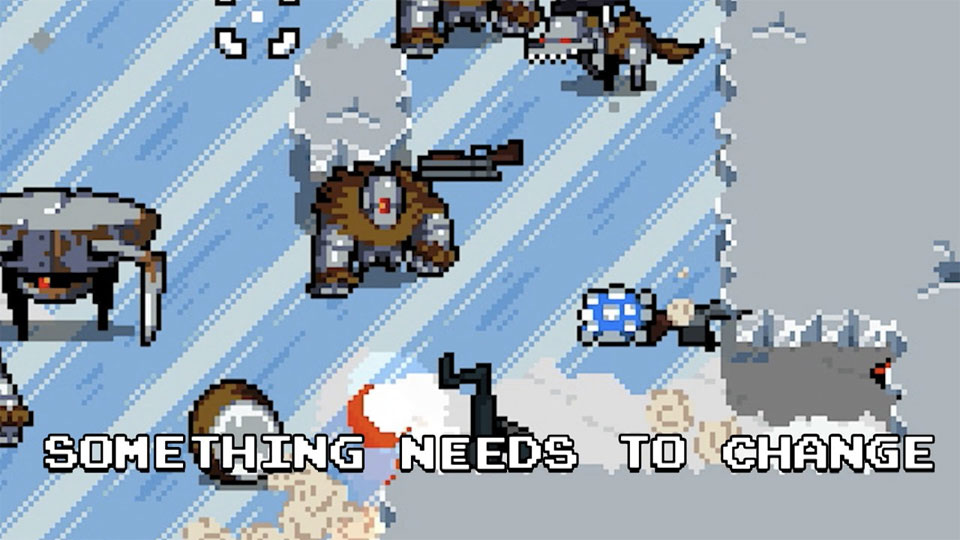 So, would you work for a huge company? Would you work with 300 people and make triple A games? That sounds terrifying! I know a lot of people in triple A games —like I said before, the games industry is small. Richard [Lemmarchand], for example, is a triple A game designer, and I’ve talked with a lot of people in triple A game companies, but it doesn’t sound like something I would do. When I screw up something we just go back to eating noodles, you know. We can do stupid stuff. If I screw up in a triple A company there’s like 300 people that lose their mortgage or something. That’s a bit too much. I asked that because I thought it’d be terrifying, I just wanted to scare you. No, no, it is. The idea of being in a triple A company is terrifying because I’m a person who likes to have control over what he does. I like that, I need that, sort of. I’m very bad with authority, so working for somebody wouldn’t work for me, I can’t really do that. And being able to control a triple A company gives so much responsibility that I wouldn’t be able to do stupid stuff anymore. Today I woke up in Genoa and I flew over here and I gave a talk here. I like doing stupid stuff, this is my life, it’s what I do, so losing that also sounds terrifying to me. That doesn’t mean I would never try, because maybe I will, I don’t know. If they want me, maybe. But for now, please no.
So, would you work for a huge company? Would you work with 300 people and make triple A games? That sounds terrifying! I know a lot of people in triple A games —like I said before, the games industry is small. Richard [Lemmarchand], for example, is a triple A game designer, and I’ve talked with a lot of people in triple A game companies, but it doesn’t sound like something I would do. When I screw up something we just go back to eating noodles, you know. We can do stupid stuff. If I screw up in a triple A company there’s like 300 people that lose their mortgage or something. That’s a bit too much. I asked that because I thought it’d be terrifying, I just wanted to scare you. No, no, it is. The idea of being in a triple A company is terrifying because I’m a person who likes to have control over what he does. I like that, I need that, sort of. I’m very bad with authority, so working for somebody wouldn’t work for me, I can’t really do that. And being able to control a triple A company gives so much responsibility that I wouldn’t be able to do stupid stuff anymore. Today I woke up in Genoa and I flew over here and I gave a talk here. I like doing stupid stuff, this is my life, it’s what I do, so losing that also sounds terrifying to me. That doesn’t mean I would never try, because maybe I will, I don’t know. If they want me, maybe. But for now, please no.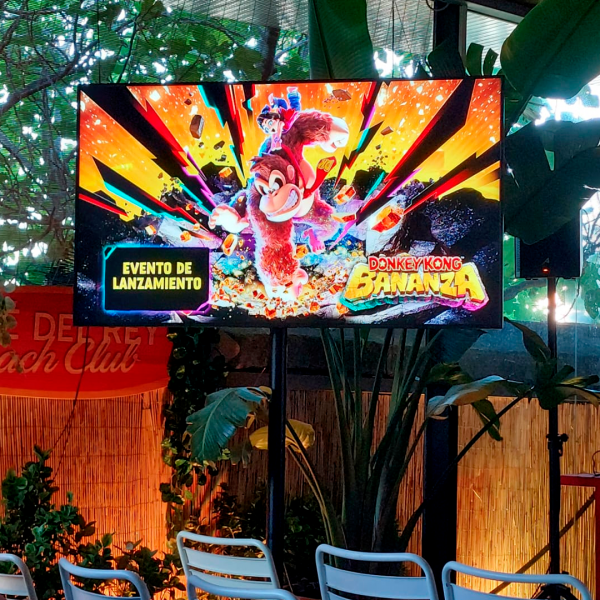
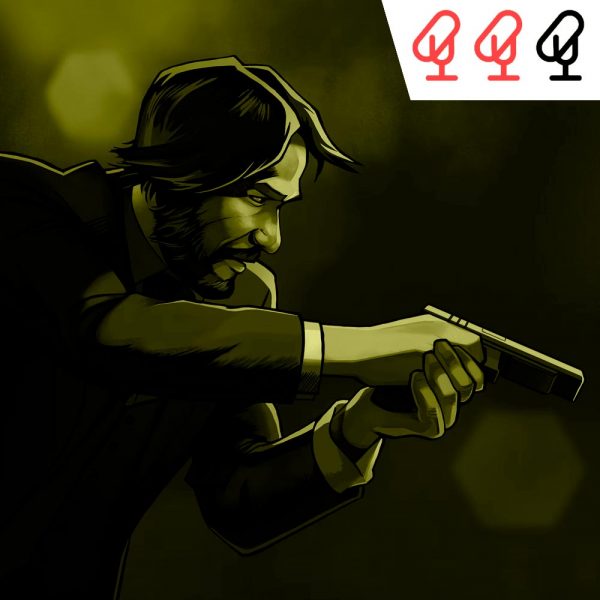
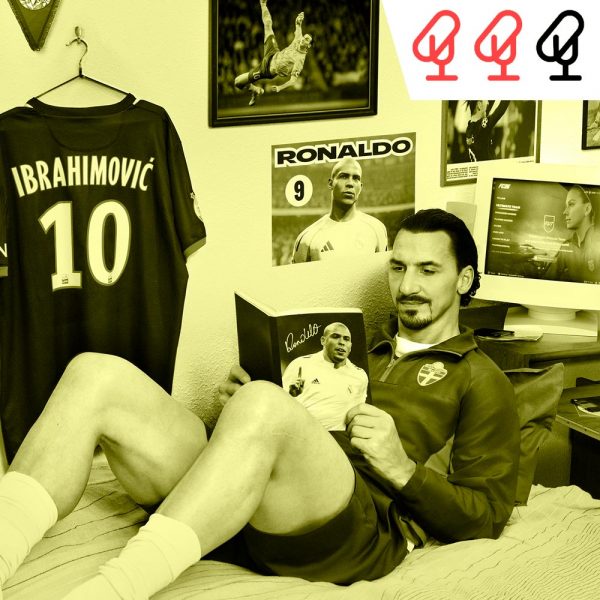
Solo los usuarios registrados pueden comentar - Inicia sesión con tu perfil.
Genial entrevista, no conocía la desarrolladora y parece muy interesante